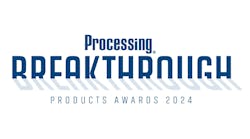Crude oil exports would be beneficial to the United States is the near-unanimous verdict of 30 economists in a recent Associated Press poll. Another survey reveals that oil-field services companies and upstream producers already see shale production as an important, even their most important, revenue driver.
In other shale-related developments, MarkWest Energy Partners is taking on additional gas-processing capacity and BASF is evaluating an investment in a world-scale methane-to-propylene complex on the U.S. Gulf Coast.
The Associated Press survey found that nine in 10 economists surveyed believe crude oil exports would lead to an oil and gas investment surge, not just in production but also for transportation and logistics. Jobs would be created and domestic oil and gas supplies more stable. It would reduce the U.S. trade deficit.
Any potential fuel price rise, those surveyed feel, would outweigh potential disadvantages. Ways could be found, for example, to help those struggling with increased fuel prices, such as introducing tax breaks.
Shale development crucial
In the other survey, more than half of U.S. oil field services companies and 40% of independent upstream producers see shale development and production as crucial to their business, contributing the majority of their 2014 revenue, according to UHY LLP Certified Public Accountants and Oil & Gas Financial Journal.
It was found that companies seeing shale as their top revenue driver increased 15% over the past 12 months. In addition, more than 40% of U.S. oil producers and their equipment providers intend to spend the greater part of their budgets on shale in 2014.
The poll included 178 oil and gas industry related companies, with combined revenues of about $700 billion. The survey indicates that the bulk of producers and services firms concentrate operations in the most prolific plays, including Eagle Ford Shale in South Texas, Permian Basin in West Texas and Marcellus Shale in Pennsylvania. More than two in three oil field services firms and almost half of producers are active in the Eagle Ford.
Oil and gas producers cited low commodity prices as a major obstacle, while oil field services firms said high drilling and completion costs are their biggest hurdles.
Meanwhile, MarkWest Energy Partners, a Denver-based midstream company, announced plans to expand its rich-gas processing capacity in the Marcellus shale. The company said it will add two cryogenic processing plants to its Sherwood complex in Doddridge County, West Virginia and its Mobley Complex in Wetzel County, West Virginia.
At Sherwood, a new processing plant will add 200 million cubic feet per day (MMcf/d) of capacity, bringing the complex’s total to 1.2 billion cubic feet (Bcf/d) by the second quarter 2015. It is being constructed at the request of Antero Resources Corp. and is anchored by a long-term, fee-based contract.
Adding a 200 MMcf/d plant at the Mobley Complex will increase total capacity at that site to 920 MMcf/d. It is being built at the request of EQT Corp.
MarkWest has 17 major processing and fractionation projects currently under development in the Marcellus and Utica shales and expects to complete 11 of these projects in 2014, which would bring total Northeast processing and fractionation capacity to 4 Bcf/d and 250,000 barrels per day, respectively.
Petrochemical in place
On the petrochemicals front, German-based Chemical producer BASF is evaluating an investment in a world-scale methane-to-propylene complex on the U.S. Gulf Coast.
On-purpose production of propylene to supply the company’s North American operations would take advantage of low gas prices due to U.S. shale gas production and considerably improve its cost position, a BASF news release said. This would be BASF’s largest single-plant investment to date.
According to IHS ChemicalWeek, BASF plans to bring the plant on stream in 2019. The company currently produces propylene in the U.S. at Port Arthur, Texas, in a joint-venture cracker project where BASF owns 60% interest and TOTAL the remaining 40%.
The announcement says the company intends to further strengthen backward integration into propylene and grow its propylene-based downstream activities, leading to a stronger North American market position. Investment details, including the capacity of the plant, investment amount and exact location are currently under evaluation.
Propylene is used in production of higher-value chemicals and plastics used widely in daily life in developed countries. The BASF portfolio includes chemicals, plastics, performance products and oil & gas BASF, leading to sales of about €74 billion and more than 112,000 employees in 2013. BASF Corp., headquartered in Florham Park, New Jersey, is the North American affiliate of BASF SE, Ludwigshafen, Germany. BASF has nearly 17,000 employees in North America, and 2013 sales of $19.3 billion.
More to come
Finally, U.S. refining giant Phillips 66 has reported a 12% increase in profit in the first quarter of the year, with its midstream and chemical businesses playing a major role in the quarter’s strong performance.
Total earnings for the first quarter of 2014 came in at $1.57 billion, equaling $2.67 per share, compared to $1.41 billion, or $2.23 per share, in the same period last year. The chemical and midstream divisions accounted for more than half of Phillips 66’s earnings, which clearly shows that the company has refocused on less financially volatile areas, rather than its traditional strength of refining.
A significant rise in income was recorded for the company’s midstream business, where earnings went up almost 70% to $188 million. The increase was due to higher throughput fees and railcar rates and lower operating costs, the company explained.
Meanwhile, Phillips 66’s chemical business generated $316 million in the first quarter, which was 12% higher than between January and March 2013 and also a historical quarterly high for the chemical business. Earnings in this segment were reinforced by the company’s equity investment in Chevron Phillips Chemical Company LLC, whose olefins and polyolefins business added a total of $283 million to Phillips 66’s earnings, up on $262 million in the previous quarter.
In conclusion, it must be noted that for the midstream and downstream businesses, such as pipeline operators and refiners, shale accounts for less than a quarter of their revenues, the survey of oil field service and upstream suppliers noted.


